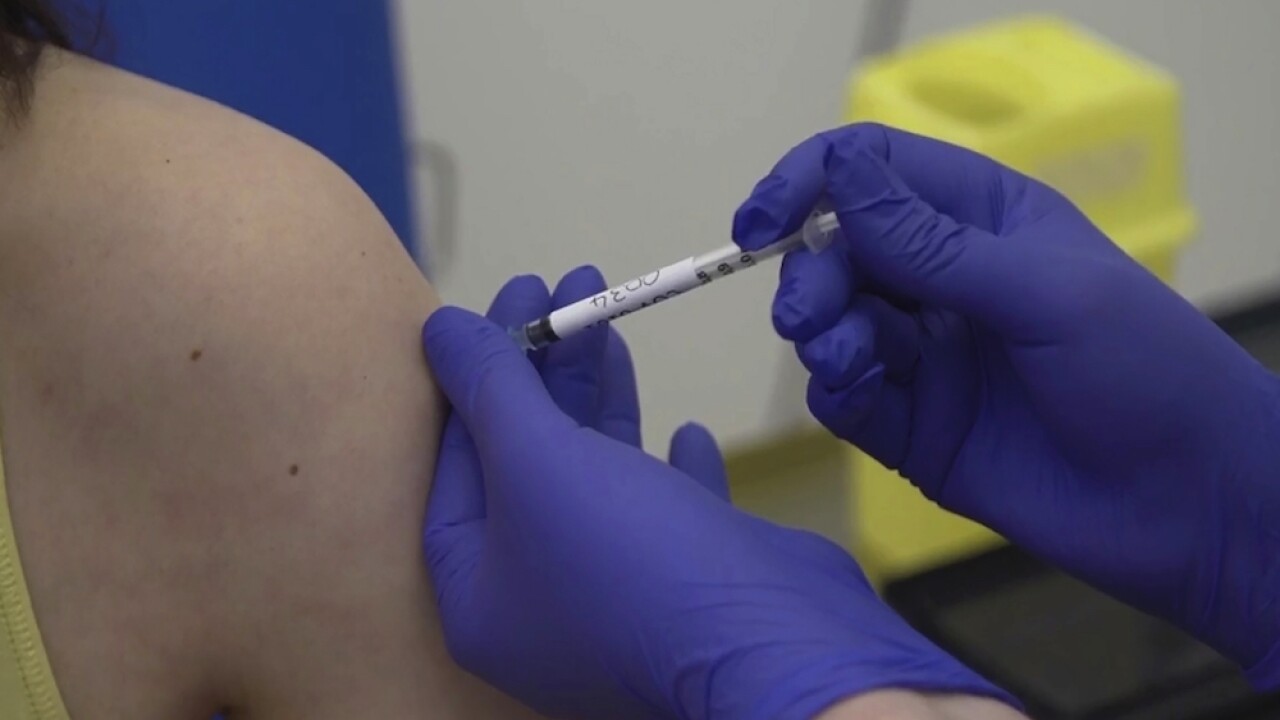As questions arise over when a coronavirus vaccine should be granted FDA approval, the leaders of several major pharmaceutical companies announced they have signed a pledge not to rush the development of a vaccine.
The companies, AstraZeneca, BioNTech, GlaxoSmithKline, Johnson, Merck, Moderna, Novavax, Pfizer and Sanofi, released a joint statement on Tuesday confirming the pledge.
The pledge includes the following points:
- Always make the safety and well-being of vaccinated individuals our top priority.
- Continue to adhere to high scientific and ethical standards regarding the conduct of clinical trials and the rigor of manufacturing processes.
- Only submit for approval or emergency use authorization after demonstrating safety and efficacy through a Phase 3 clinical study that is designed and conducted to meet requirements of expert regulatory authorities such as FDA.
- Work to ensure a sufficient supply and range of vaccine options, including those suitable for global access.
There has been pressure on both the FDA and manufactures to develop and approve a vaccine for the coronavirus. There have been more than 190,000 coronavirus-related deaths in the US since March, and the economic impact of the virus has cost millions of jobs.
While most developed countries have not had the same public health pain as the US, the economic impact of the virus has been felt worldwide. The International Monetary Fund estimates a nearly 5% loss in global GDP in 2020.
In Russia, the country claimed to begin distributing a coronavirus vaccine despite US-based vaccine candidates likely being months away from being able to demonstrate efficacy.
The pressure domestically has also ratcheted up as President Donald Trump has suggested a vaccine could be ready by this fall’s presidential election.
"We're going to have a vaccine very soon... maybe even before a very special date, you know what date I'm talking about,” Trump said on Monday.
In late August, the CDC told states to begin to prepare distributing a vaccine by Nov. 1. But Surgeon General Jerome Adams said that just because states will be ready to help distribute a vaccine on Nov. 1 does not mean a vaccine will be ready by then.
"We've always said that we're hopeful for a vaccine by the end of this year or the beginning of next year,” Adams told Good Morning America.
"We want to make sure states are available to distribute it," he added.
The companies signing on the pledge said that the FDA has strict protocols for vaccine candidates. A typical vaccine trial takes one to three years, but the companies believe only a safe and effective vaccine will be granted approval.
“FDA has established clear guidance for the development of COVID-19 vaccines and clear criteria for their potential authorization or approval in the US,” the companies wrote in the pledge. “FDA’s guidance and criteria are based on the scientific and medical principles necessary to clearly demonstrate the safety and efficacy of potential COVID-19 vaccines. More specifically, the agency requires that scientific evidence for regulatory approval must come from large, high quality clinical trials that are randomized and observer-blinded, with an expectation of appropriately designed studies with significant numbers of participants across diverse populations.”

